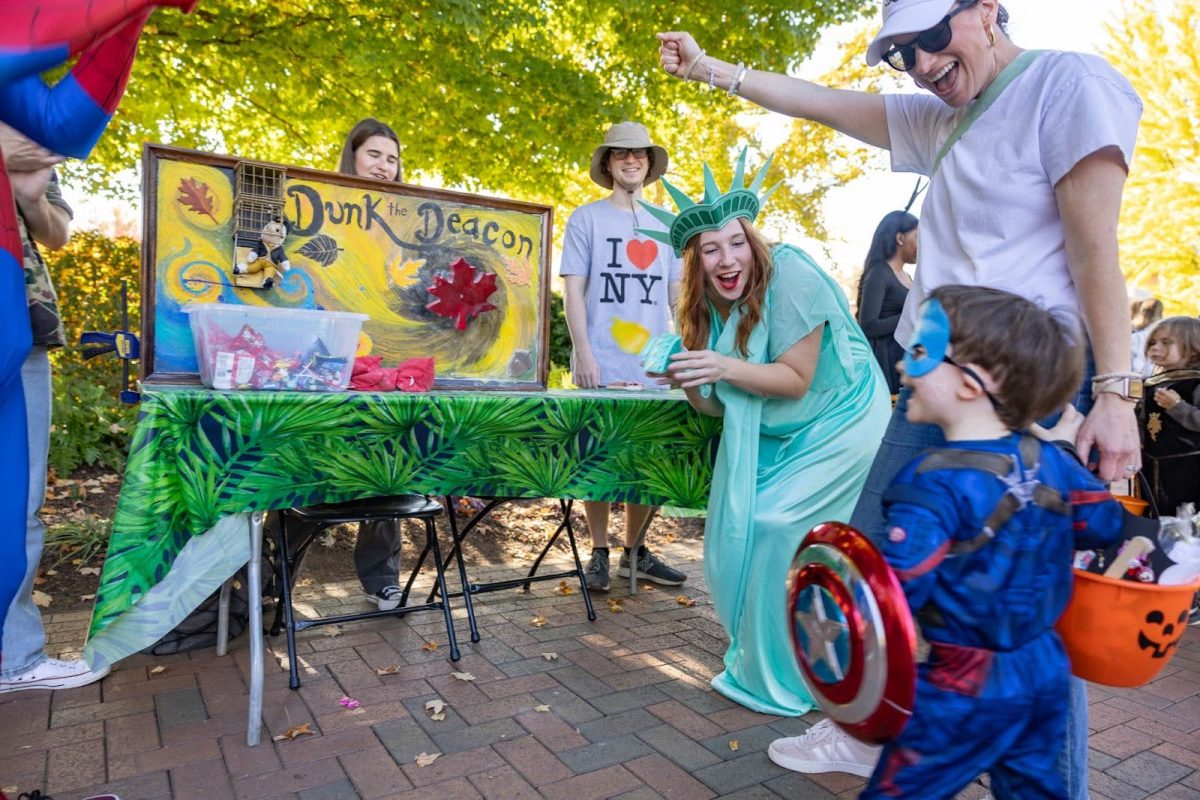The campus community mourns the loss of psychology research assistant and master’s program alumnus Jessica Rivers. Jessica passed away on July 2, and she is still remembered fondly by her colleagues, professors, friends and family members. Students struggling to cope with loss should contact the counseling center at 336-758-5273.
Jessica Rivers was a research assistant and graduate student in the Wake Forest Department of Psychology who passed away on July 2. She is remembered as a kind and hardworking student and researcher.
“We grieve Jessica Rivers’ death,” said the Office of Communications and External Relations in an email to the student body. “[We] extend our condolences to her family and friends, as well as those at Wake Forest who had the opportunity to know her.”
Jessica came to Wake Forest in the spring of 2017, after earning a bachelor’s degree in psychology from Radford University. Once there, she took part in a program that recruited students for master’s research, and interviewed with several professors to find a good fit. She soon began a research collaboration with Professor Christian Waugh.
“She was very, very kind,” he said. “And always willing to help people. She wasn’t very extroverted, but she always had a quick smile for people.”
Her master’s research covered an array of topics in psychology. Waugh said she was especially interested in studying the methods people use to cope with stressors; an endeavor that employed a variety of designs and analyses. She interviewed caregivers about their stressors, and even used virtual reality equipment in some of their experiments. She received her master’s degree in May 2019.
Her work in this area would assist her in her studies with Professor Eranda Jayawickreme, who was her supervisor for her Research Assistant position.
“She always had a ‘can do’ attitude,” said Jayawickreme. “And she always had kind words for people.”
He went on to say that her desire to help others persisted through her work as a research assistant, including personality change studies, the study of the factors that shape one’s identity. He said he also recalls his casual chats with Jessica fondly, saying that they would talk often about music festivals, and her favorite indie bands.
“She made me feel old,” he said lightheartedly.
Waugh said Jessica planned to attend physical therapy school after she finished working for the psychology department, which he characterized as a more hands-on approach to fulfilling her need to help people cope with the ailments of living.
Jessica worked as a research assistant through the summer of 2019, helping both undergraduates and her fellow graduate students, until her life was tragically cut short on July 2.
“She was a wonderful student. I was lucky to work with her and publish a paper with her,” Jayawickreme said. “It’s just such a shame. I don’t know how else to say it. To be honest, I feel like I’m still processing it. I’m still trying to make sense of it.”
He also said he was planning to have a talk with his lab group the subsequent week to help them all cope. Waugh corroborated this sentiment, saying that everyone’s way of processing tragic events is unique.
“My way has been to really focus on appreciating the things that we did together,” Waugh said. “I like to think about how, for those two years that she was here, she was happy, and enjoyed it and felt fulfilled.”
A memorial service was held for Jessica on July 20, at Huff Funeral Home in East Bend, N.C. Department Chair Dr. Eric Stone organized a smaller memorial, for those who could not attend the former, in the psychology department on July 22.














